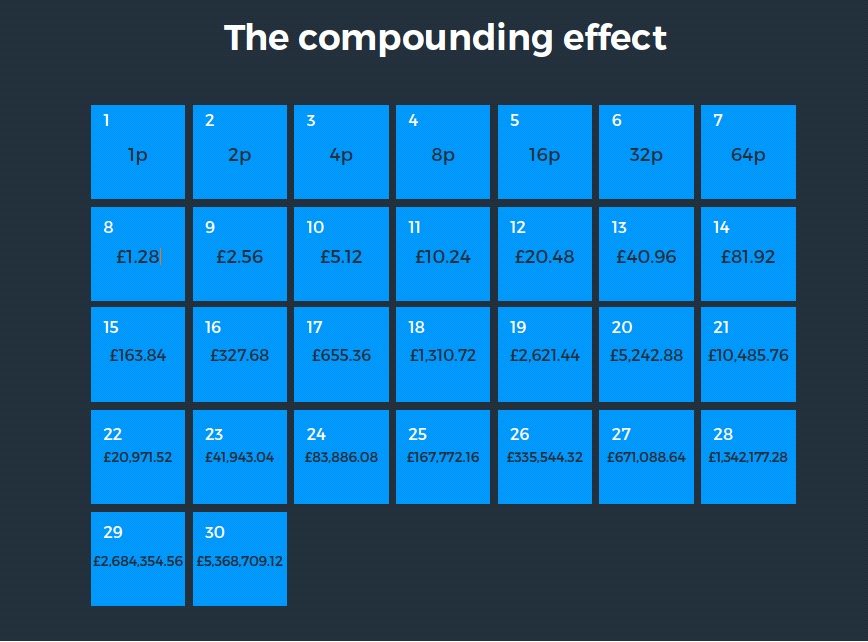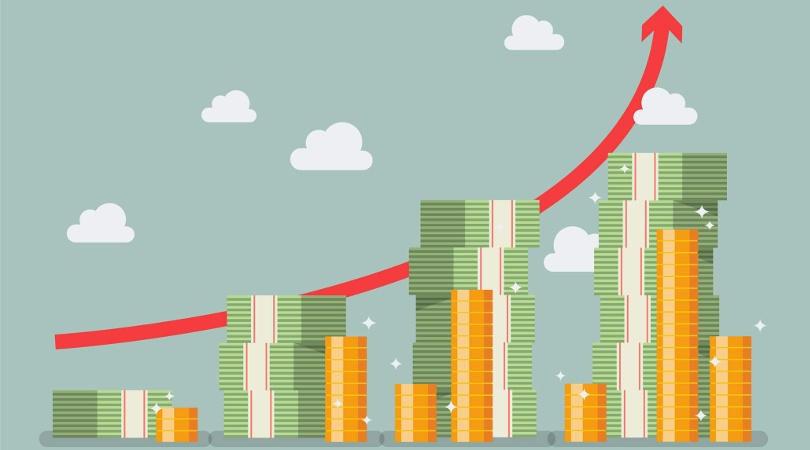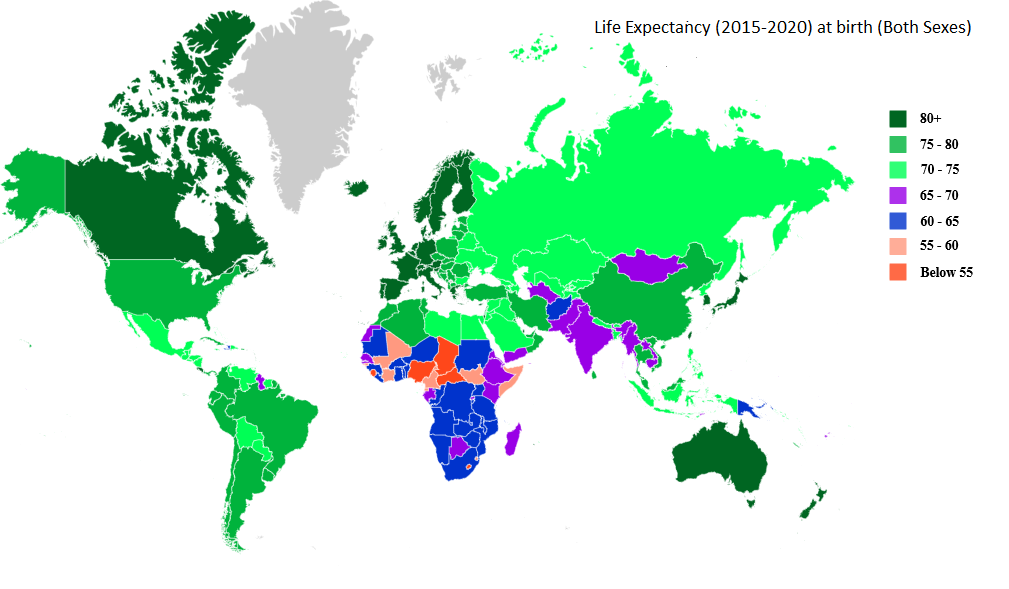28 May 2020
What is Compound Interest?
Arguably, one of the most powerful forces in the financial markets is compound interest. Albert Einstein called it the eighth wonder of the world. It helps to maximise your returns therefore helping you to reach your goals quicker than simple interest alone. Compound interest explained:
When calculating interest on a loan, savings account or investment, there are two types of interest; simple or compound.
Simple interest is the easiest to calculate but in reality, it’s rarely used. It is charged on the principle amount only and ignores any increase or decrease in value over time. For example, if you invested £1,000 and you earned 2% interest per annum, you’ll get £20 every year it’s invested. Compound interest however is very different.
Interest Earned on Interest
Compound interest is charged on the principal amount plus any increase or decrease in value over time. It’s defined as the interest that is earned on interest. It’s the result of reinvesting interest instead of paying it out like simple interest does. So, the interest earned this year is added to the principal and interest earned form the year before. For example, if you invested £1,000 and you earned 2% interest per annum, you’ll get £20 in the first year. On the second year, you’ll get 2% of £1,020 increasing your investment to £1,040.40. On the third year, you’ll get 2% of £1,040.40 and so on.
Compound interest helps a sum grow faster than by just interest itself, and can maximise your returns, especially with larger values and over a longer time-horizon.
The Frequency of Compounding
In reality, compounding occurs more frequently than once a year. Popular compounding intervals are daily, monthly and quarterly. The rate in which compound interest grows really depends on how often the compounding occurs. In theory, the higher the number of compounding periods, the quicker compound interest will grow.
For example, if you invested £100,000 into an investment that pays 2% per annum once a year – after 12 months you’ll have £102,000. However, if the investment paid 1% semi-annually you would have £102,010. The first interest payment would be 1% on £100,000 increasing your investment to £101,000. The second payment would be 1% of £101,000, increasing your investment to £102,010, making your total return for the year £2,010.
Impact of Compound Interest
To emphasise the impact compound interest could have on your savings, if I offered you £500,000 right now or 1p today that doubled everyday for 30 days, which would you chose. Whilst most people would think you were crazy if you chose not to accept the £500,000 now, it would certainly be the right choice. If you chose 1p that doubled everyday for 30 days, you would get back over £5.36 million.
Of course, this is certainly not reflective of the returns you could see by investing in the financial markets, but it helps to highlight the power of compounding. The more money you have invested and the more frequent the compounding periods, the quicker your investment will grow.

From the table above, you can notice that progress is slow at the start. It takes 15 days to get from 1p to over £160, but only 15 days after that to get to £5.4 million. The more money you can keep in the markets instead of paying unnecessarily expensive fees, the better your return is.
How to Calculate Compound Interest
To calculate the impact of compound interest, you will need to use the following formula:
A = P[(1+i)n-1]
• A = Amount
• P = Principal,
• i = nominal annual interest rate
• n = number of compounding periods
To understand how this works, imagine you took out a mortgage to buy a new property. You borrowed £100,000 and chose to pay it back over 20 years. The interest on the mortgage was 3% that compounded annually.
To work out the interest you would need to pay back, the calculation would look as follows:
£100,000 [(1+0.03)20–1] = £100,000 [0.80611]
The interest you will pay is £80,611
Due to the impact of compounding, the effective rate of interest on your mortgage would actually be 8.06% per annum over the 20-year period compared to the initial 3%.
Now imagine that you take out the same mortgage over the same 20-year time frame but the interest was compounded semi-annually instead of annually. Because the interest is paid twice a year, the 3% is divided twice and paid every 6 months increasing the compounding periods to 40. In this scenario, the amount of interest you would need to pay increases from £80,611 to £81,401.84 as shown above. This also increases the effective rate of compound to 8.14% per annum.
Compounding Periods
This highlights the amount you pay in interest or earn as a return when you invest, can rise due to an increase in the number of compounding periods. The reality is, taking advantage of compounding interest could mean you reach your financial goals much quicker. It really could make the difference to help you retire early.
Saving on a regular basis will help you to take advantage of compounding interest, Winson Capital financial consultants can help you to find a suitable savings plan to do this. Please feel free to get in touch. Our advice is simple, efficient and tailored to your needs. We can help you to set up an investment plan that maximises your long-term returns whilst protecting your wealth.
TALK TO A WINSON CAPITAL FINANCIAL CONSULTANT
Error: Invalid action URL is detected.









